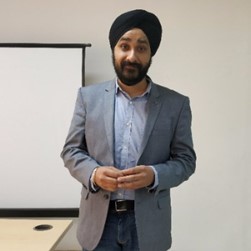Critical 21st Century Skills For Students To Fast Forward Their Careers
The skills for students that humans need to be productive members of society vary from century to century. Typists, secretaries, and telephone exchange operators were commonplace once upon a time but are no longer needed.
Advances in technology, including automation, robotics, and AI, are introducing uncertainty and change in people’s lives and livelihoods. Some careers may well turn into dead-ends — think ‘mainframe programmers’ or ‘COBOL programmers.’ While other career options may fast-track your career growth — a digital marketing career being an example of a career with excellent growth opportunities.
Many careers that will exist 20 to 30 years from now haven’t yet been invented. New careers that are mainstream today — such as Amazon delivery personnel — may be supplanted by drones in the future. What can be automated will be automated. Agriculture has become unimaginably more automated compared to the 19th century.
The 4th Industrial Revolution will drive 21st-century careers. The 4th Industrial Revolution will be enabled by the Internet of Things (IoT) devices connected to the internet via 4G or 5G connections. Data analytics, cloud computing, mobile devices, and smart sensors inside our homes, appliances, and cars will power this Revolution (Source: Wikipedia.)
What career-centric skills do students need to succeed in this unpredictable and transformative time? Different educational frameworks are being developed and tested by different organizations and education boards.
Iowa Core standards talk about a range of skills in 1) Civic Literacy, 2) Employability Skills, 3) Financial Literacy, 4) Health Literacy, and 5) Technology Literacy. There are common 21st-century skills that all such frameworks mention: (Source: Iowa Core).
- Collaboration
- Creativity
- Critical Thinking
- Problem Solving
Apart from the above four skills, Leadership skills, global and cultural awareness, information literacy, and flexibility are the other key skills mentioned in different frameworks.
Career-Oriented Skills to Succeed
In the unpredictable and dynamic work environment of the future, students will need a combination of hard skills, soft skills, and life skills.
Hard Skills For Career Success
You need a set of skills to become a doctor, an engineer, an accountant, a lawyer, a pilot, and so forth. If you are lucky enough to ‘find your passion’ early on — think of Steve Jobs, Bill Gates, Dr. Randy Pausch, etc. — then things become simpler. You’ll happily invest your time in acquiring the specific skillsets that your profession will require. Most astronauts tend to say that they always wanted to be an astronaut.
Mastering Engineering & Technology
In the 21 century, nearly all career choices will require a level of understanding of technology and adequate familiarity with them. Even if you want to become a planetary scientist or astronomer, you will need to know Python programming.
And if you want to have a career in hot new fields such as cloud computing, AI/ML/robotics, you will need to immerse yourself in programming. Once you understand the basics of programming, you can choose your direction — websites to Android or iOS development or cloud or ML. It’s an almost limitless frontier.
When NASA successfully lands rovers on Mars, it’s because of extraordinary engineering combined with some exceptionally clever code.
If you want to stay connected to the frontier fields of science & technology, you’ll need to specialize in some engineering field and combine that with knowledge of computer programming as required.
Once you have become an engineer, your career prospects are endless and only dependant on whether you are at the right place at the right time and whether you play your ‘cards’ right — the cards being further specialization or higher studies and so forth.
Such technical skills would define you as a ‘techie in a place such as Stanford University.’
Mastering Digital Marketing
Much like data analytics/ML and cloud computing, digital marketing is a recent innovation. Traditional marketing involved creating TV ads that were sometimes wonderful and memorable. But with the rise of the internet and streaming platforms, digital marketing has become the mainstay of marketing companies. It’s about taking marketing to where the eyeballs are.
The vast field of digital marketing comprises several specific skillsets that you can master:
- Search Engine Optimization (SEO) & Search Engine Marketing (SEM);
- Video Marketing;
- Mobile Marketing;
- Social Media Marketing;
- Content Marketing;
- Email Marketing;
- Copywriting;
- analytics.
Since most companies are moving towards digital marketing, there is a huge demand for digital marketers. If you want to enter an exciting discipline that is constantly evolving at a rather rapid pace, digital marketing could be the perfect career for you. It requires creativity and a desire to learn.
Soft Skills Required For Career Success
Soft skills are important because humans are social creatures. It takes a good storytelling ability to connect with people and to persuade people. If you want to become a manager or an entrepreneur, you need people skills to persuade your staff, your VC funder, your client, and so forth. Leadership skills are a must if you want to rise the corporate ladder or if you want to go it alone and start a company.
Leadership Skills
Having leadership skills helps accelerate your career. Leadership skills can be acquired through training programs, or they can be part of the curriculum. Universities are launching courses with a multi-disciplinary approach, and those courses will include leadership lessons.
Leadership requires a broad range of skills — character and integrity, self-awareness, humility, gratitude, adaptability, flexibility, empathy, and ability to communicate, to mention a few of those skills.
Stanford University’s Symbolic Systems program is one of the better-known programs of its kind. Symbolic System is an example of a course that combines a broad range of subjects into a single course. The alumni from that course have gone on to accomplish many great things. Marissa Mayer and Reid Hoffman are just two of the most well-known graduates of the course at Stanford.
Symbolic Systems covers computer science, linguistics, philosophy, and psychology. As Stanford puts it, the goal of the program is to “prepare students to participate in interdisciplinary research into questions about language, information and intelligence — both human and machine. The curriculum combines traditional humanistic approaches to these questions with familiarity with science and the technology of computation.” (Source: Stanford.)
So, if you want to approach problems in the manner of Reid Hoffman and want to be able to look at patterns in terms of which marketplace will work or which payment system it will work with and so forth, symbolic systems are the course of choice.
Of course, there are similar courses from different universities, and there are online alternatives to traditional universities (source: American Express.) if you want to develop a more rounded approach to starting companies or providing consulting to businesses, symbolic systems are the way to go again.
Creativity & Communication Skills
Creativity is an essential career skill in the 21st century. Those jobs that require no creativity will probably get automated. Computers are not only beating world chess champions or world Go champions or the best Jeopardy players in the world; they are learning to write. Computers have started doing a better job of interpreting CT scans and MRIs than trained radiologists.
It’s only in realms where it takes creativity that computers fall short of the human brains’ unique capabilities, intuitions, and general-purpose capabilities. Who knows what else general-purpose AI of the future will accomplish, but computers are inferior at applying one set of skills to a completely different set of problems. Humans can learn a set of skills in one context and then apply that skill in a totally different context.
Along with creativity, communication skills are paramount. Learning to write essays or dissertations hones one’s ability to express oneself. When it comes to leadership roles or entrepreneurial challenges, communicating your ideas clearly is key. You’ll need to persuade others to your point of view, which can only happen when you communicate clearly and effectively.
Skills For Students: Personality Skills
Various skills together make up ‘personality skills,’ which are crucial to succeeding in careers in the 21st century. It would help if you had a flexible personality to carry everyone along and work seamlessly as part of a team. Flexibility requires humility. It’s always a great idea to be humble and to admit when you have been wrong.
Reed Hastings of Netflix says that he was ‘not honest’ in running the first company that he founded. Hastings was less than forthright when it came to making it clear that ‘things were not working out.’ In professional settings, it’s better to keep things level. In his second company, Netflix, his approach is to offer a generous severance package to good employees. Netflix only keeps exceptional employees and pays them exceptionally well.
Being productive and resourceful and taking the initiative are some personality traits or skills that will come in handy in your career. If you are not quick to learn new things, you are an average employee if you are not improving from year to year if you are not a proactive problem-solver. Companies can easily replace one average employee with another.
When you are exceptionally productive or always willing to be resourceful and full of initiative, you will be indispensable to whatever company employs you. Companies such as Tesla and SpaceX have succeeded by taking risks. They upended two huge industries — automobiles and rocket launches. The employees at these companies must have been exceptionally creative employees with a lot of initiative and courage as a set of skills for students.
Adaptability & Flexibility
Humans are nothing if not adaptable and flexible. Starting from Africa, our species has conquered the world in about 200,000 years. And now humans are thinking about sending humans to other planets. Interestingly, before railroads and cars came into being, many people never traveled further than 25 miles in their entire life. We have clearly come a long way since then.
Adaptability & flexibility are important because you might need to move from one technology to another. New computer programming languages dethrone older ones — you may need to move from Ruby to Java to Kotlin to Swift to Python as the job requirements change. You may move from an ‘individual contributor’ role to a managerial role, and then you’ll need a different set of skills.
All founders face the challenges associated with leading large corporations that started as small companies. Google grew from a garage to a hundred thousand headcount company. Google under Eric Schmidt and Marissa Mayer came up with their ‘APM program’ to train young recruits to be assistant project managers. It was about being adaptable and flexible as individuals and as a company (Source: Candor. Google. YouTube. )
Skills For Students: Combing Hard & Soft Skills
It’s by having a combination of these two kinds of skills — technical skills and psychology/personality skills — that you’ll travel farthest in your career as either an employee or as an entrepreneur. Humans are irrational decision-makers and poor judges of probability.
If asked to multiply 9X8X7 … X2X1 versus 1X2X … 7X8X9, humans give wildly varying estimates. Humans estimate the frequency of occurrence of alphabets in words erroneously. Humans think dying from shark bites is more likely than dying from falling airplane parts.
These are all instances of ‘availability heuristic’ in action. If you are required to evaluate a specific topic or concept, or method, you often base your evaluation on something similar that you recall (Source: Wikipedia.)
The peak-end rule is another heuristic in which people judge an experience imperfectly, which manifests in different ways. (Source: Wikipedia.) there are umpteen situations where customers have experiences with businesses, and the customers will judge those experiences under the influence of the peak-end rule heuristic.
Nudge theory works wonders for businesses, students, and governments in different ways. You can get more citizens to be up-to-date with their taxes using nudge theory, and grocery stores can persuade their customers to buy more fresh produce from their fruit and vegetable section using nudge theory (Source: SkipRichard.)
There are important lessons for everyone in these heuristics and biases of the human mind. We often fail to appreciate that our lives have improved enormously in the last hundred years — there is less war, less crime, less chance of dying in a homicide, less chance of dying at work, and so forth. Bill Gates highlights some of these facets in his review of Steven Pinker’s books (Source: Gates Notes.)
It matters to have skills spanning technical domains and more humanistic disciplines so that students, learners, and employees can bring a humanistic and empathetic approach to work and decision making. Like Steve Jobs said, you can only connect the dots looking backward. Like Jobs also noted, it’s best to ‘Stay Hungry. Stay Foolish.’
 Jasmeet is a founder of Lessons at Startup – A blog where he shares entrepreneurial stories. He specializes in Digital Marketing and Content Writing.
Jasmeet is a founder of Lessons at Startup – A blog where he shares entrepreneurial stories. He specializes in Digital Marketing and Content Writing.
He is addicted to Google News, Netflix, Good Coffee, and Quora.
























